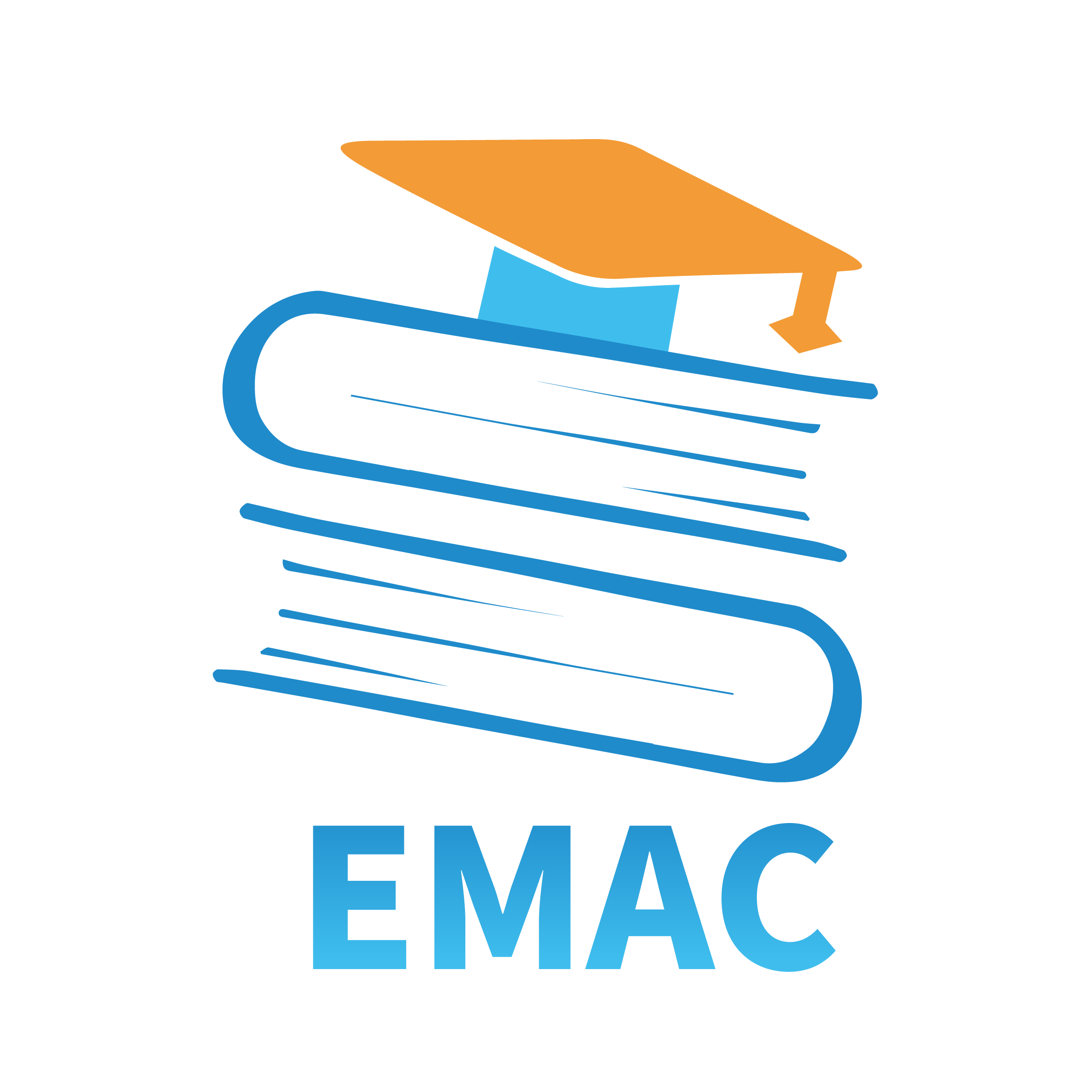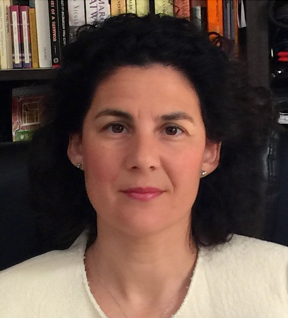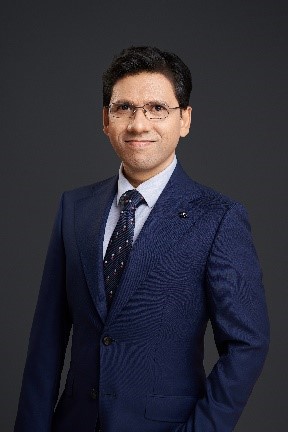
Speakers

Prof. Soraya Garcia-Esteban
University of Alcala, Spain
Research Area: Teacher Training, Computer-Assisted Language Learning, key / Global / Competences, Virtual Collaboration, EAP
Brief introduction: Assoc. Prof. Dr. Soraya Garcia-Esteban holds a Ph.D. in Modern Languages, Literature and Translation from Universidad de Alcalá (UAH) and a M.A. from University of the West of England. After years of experience in several European higher education institutions, she is the current coordinator of the UAH- Master´s degree in Teacher Training (English) and full time lecturer in ESP, CLIL and ELT methodology in Alcala University. Her interest and participation in international innovation and research projects related to virtual exchanges for competence development in EMI contexts integrating technology, pedagogy and content knowledge has resulted in more than a hundred academic and scientific publications and communications. Dr. Garcia-Esteban co-led European project ErasmusX “Online courses for mobile students” and participates in Erasmus+ project "e-Close- A model for Interactive (A)Synchronous Learning in Online STEM Education".
Title of Keynote Speech: Innovative Methods and Approaches that Enhance Socioemotional Skills in Educationthrough Virtual and Collaborative Cultural Project-based Learning
Abstract: In an increasingly interconnected world, the development of socioemotional skills is essential for both personal and professional growth, particularly in Education. This communication explores innovative methods that foster these skills through virtual collaborative interactions and culture-based projects. Drawing from case studies and research, the session will revise specific approaches and resources in teacher training that can lead to meaningful socioemotional development, thus contributing to sustainable development goal 4. Quality Education. The session aims to offer insights into theoretical foundations, practical applications and future directions for the development of key competences for life-long learning and employability

Assoc. Prof. Brian Lee Chin Hin
Singapore University of Social Sciences, Singapore
Research Area: Social media; E-learning; Impacts of Artificial Intelligence (AI); Strategic Communication
Brief introduction: Associate Professor Brian Lee is the Head of Communication Studies at the Singapore University of Social Sciences, Singapore. He teaches and conducts applied research in e-learning, intelligent education, social media and strategic communications. He has recently published various timely op-eds, such as the impact of ChatGPT on education, how TikTok shapes users’ social behaviour, etc.
Previously, Brian has been awarded research grants for work on two major applied research projects: One on social media and another on e-learning.
As an applied researcher in communication studies and e-learning, Brian has served as a key speaker at various international conferences, such as the International Conference on New Trends in Social Sciences (Belgium, 2023), the International Conference on Humanities, Wisdom Education and Service Management (China, 2023) and the International Congress on Behavioural & Social Science (Dubai, 2024), among others.
Prof Lee holds a doctoral degree in Communication and Information from Nanyang Technological University, Singapore, and a Master’s degree in Communication Studies from the University of Texas at Austin, USA
Title of Keynote Speech: Effectiveness of using social media as an informal learning platform
Abstract: Social media can potentially enable informal learning and change the way we learn beyond the classroom. Many education institutions have cautiously started to explore social media for education purposes, in view of the research findings suggesting that 80% of all learning could be attributed to informal learning.
Social media can foster collaborative learning, enabling students to engage in group discussions, share resources, and receive real-time feedback. This interaction enhances learners’ engagement and motivation, with platforms like Telegram, TikTok, Facebook and Twitter providing informal learning environments. Social media can also offer access to diverse online and digital resources. However, the use of social media for e-learning may present challenges. Distractions and time management issues are common among young learners. Security concerns, such as the leaking of personal information, are prevalent on social media platforms. In addition, many learners have difficulties in discerning credible sources due to the overwhelming amount of unregulated information on social media.
After all, there is still relatively little empirical evidence to support the effectiveness of using social media as part of the informal learning process, especially how learners employ digital media as an e-learning platform. The speaker would like to share some insights, drawing on his own experience employing social media for teaching and learning at the Singapore University of Social Sciences since 2008.

Assoc. Prof. A.Y.M. Atiquil Islam
East China Normal University, China
Research Area: Assessment of Educational Technologies; Quantitative Modeling; Technology, People & Society; ICT in Higher Education; E-learning; Virtual Reality; Technical and Vocational Education and Training; Teacher Training and Education Science; Information Science; Digital Library Sciences; New Social; Media Analysis; Artificial Intelligence; Quality in Higher Education
Brief introduction: Dr. A.Y.M. Atiquil Islam is an Associate Professor at the Department of Education Information Technology of the East China Normal University. He is also a Guest Professor at the School of Teacher Education of Jiangsu University. He obtained a multidimensional PhD degree by combining two faculties, namely, Education and Computer Science & Information Technology at the Institute of Graduate Studies, University of Malaya. Throughout his academic life, various scholarships he has been awarded certainly have been the most significant instigators of his achievements. He received the Graduation on Time (GOT 2015) Award from the University of Malaya and honorarium for finishing his PhD in less than three years.
Title of Keynote Speech: Transforming the Idea of Educational Research into Practice
Abstract: In the 21st century, educational research has emerged as a dominant field within the social sciences due to its interdisciplinary nature. Despite its growth over the past decade,many early-career researchers struggle to conduct effective studies, often hindered by an incomplete understanding of educational research and insufficient skills. A key challenge lies in operationalizing the concept of educational research. Islam (2011) addressed this challenge by proposing a contemporary framework for educational research, emphasizing that “the contemporary definition of research is the logical integration of ideas” (Islam, 2017). He identifies three core components essential for operationalizing educational research: innovative ideas, logical reasoning, and integrative skills. These components are interdependent, and the absence of any one undermines the process. To integrate innovative ideas logically, Islam has proposed two types of approaches: the theoretical approach and the methodological approach. The theoretical approach is to develop the theory or model wherein the research ideas will be logically integrated within a framework. The methodological approach is to validate the theory or model to confirm whether the ideas have been appropriately and logically incorporated within a structure which can provide expected outcomes. This presentation highlights the application of these approaches through the Technology Adoption and Gratification (TAG) model. The TAG model, developed and validated based on existing frameworks, serves as a practical example of how innovative ideas can be logically integrated to operationalize educational research. This presentation is invaluable for young researchers, academics, and practitioners in higher education, offering a pathway to logically incorporate their ideas into research. It also provides a guideline for social scientists and educational researchers to enhance the quality of quantitative modeling studies and improve measurement practices in education.